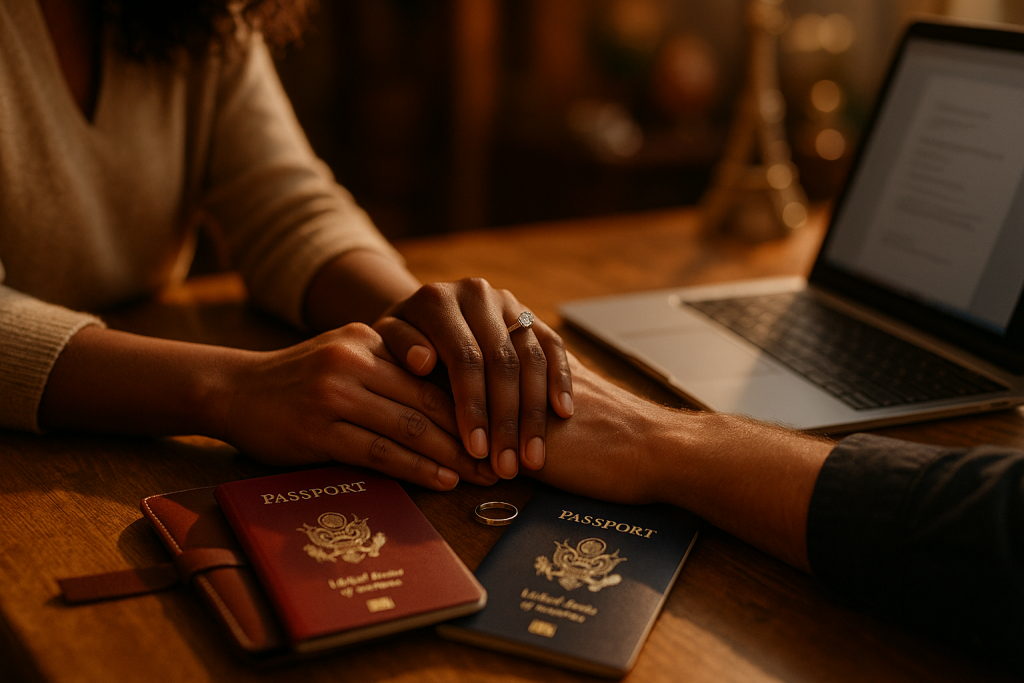In today’s digital age, many couples are exploring the possibility of virtual weddings. A common question arises: can priests bless these virtual unions? The answer varies depending on religious traditions and legal jurisdictions.
Understanding Virtual Weddings
A virtual wedding typically involves a couple exchanging vows via video conferencing platforms like Zoom. While this offers convenience, especially for long-distance relationships or during unforeseen circumstances, the acceptance of such ceremonies differs among religious institutions.
Catholic Church’s Stance on Virtual Weddings
The Catholic Church emphasizes the physical presence of the couple, priest, and witnesses during the Sacrament of Matrimony. Bishop Ruperto Santos of Balanga, Bataan, stated that for validity, all parties must be physically present to sign in front of each other. Therefore, virtual marriages are not considered valid within the Catholic Church. Source
Protestant and Other Christian Denominations
Some Protestant denominations are more flexible regarding virtual ceremonies. For instance, organizations like Sharing Jesus To The World offer Christ-centered virtual wedding ceremonies that are legally recognized across all 50 U.S. states. These ceremonies are tailored to the couple’s faith journey and cultural traditions. Source
Legal Considerations for Virtual Weddings
Beyond religious acceptance, the legality of virtual weddings varies by state. In California, for example, authorized persons of any religious denomination, including those ordained online, may officiate weddings. However, the officiant must complete the marriage license and return it to the county clerk within four days after the ceremony. Source
Virtual Weddings and Apostille Services
For couples planning a virtual wedding, especially those with international considerations, obtaining an apostille for their marriage certificate is crucial. An apostille authenticates the document for use in foreign countries. Our Apostille Service ensures your marriage certificate is recognized internationally.
Document Translation for International Recognition
If your marriage certificate needs to be presented in a country with a different official language, certified translations may be required. Our Certified Translations service provides accurate translations to meet international standards.
Planning Your Virtual Wedding
When planning a virtual wedding, it’s essential to consider both religious and legal aspects. Ensure that the ceremony aligns with your faith’s requirements and is legally recognized in your jurisdiction. Our How It Works page offers a step-by-step guide to help you navigate the process.
FAQs
Are virtual weddings legally recognized in all states?
No, the legality of virtual weddings varies by state. It’s essential to check with your local county clerk’s office for specific regulations.
Can a Catholic priest bless a virtual wedding?
According to Catholic doctrine, the physical presence of the couple and officiant is required for a valid marriage. Therefore, virtual weddings are not typically blessed by Catholic priests.
Do I need an apostille for my virtual marriage certificate?
If you plan to use your marriage certificate in a foreign country, an apostille may be necessary to authenticate the document.
Can online-ordained ministers officiate virtual weddings?
In many states, ministers ordained online can officiate weddings. However, some states do not recognize online ordinations. It’s crucial to verify local laws.
How can I ensure my virtual wedding is legally binding?
Consult with local authorities to understand the legal requirements, ensure all necessary documents are completed accurately, and consider seeking professional assistance.
For personalized guidance on planning your virtual wedding, feel free to contact us. We’re here to help make your special day both meaningful and legally recognized.



